
The Director General of the National Agency for Food and Drug Administration and Control, NAFDAC, Prof. Mojisola Adeyeye, has challenged manufacturers of pharmaceutical products in the country to take the necessary investment decisions that will facilitate the production of human vaccines in Nigeria.
She warned that Nigeria should not wait for another pandemic before it gets prepared and avoid being caught unawares, as witnessed during COVID-19, when the country depended on international donors to survive the scourge.
As was contained in a press release by Sayo Akintola
Resident Media Consultant NAFDAC, the DG explained,
“When I came to NAFDAC, we had the Registration and Regulatory Affairs Directorate, which was in charge of registration of all NAFDAC-regulated products, meaning the registration of food, drugs, cosmetics, medical devices, herbal medicines, vaccines, veterinary products, pesticides, and other finished chemicals was under one Director, which made the system susceptible to ineffectiveness and corruption”
“I first carved out the Food Registration and Regulatory Affairs Directorate, and what was left over was still huge. Adding that if you want good governance and leadership, you must have governable units, governable groups. One Director overseeing seven regulated products will not achieve the necessary efficiency. “
“That was why we knew that we had to separate vaccines and medical devices from the Drug Registration and Regulatory Affairs Directorate.
NAFDAC became Maturity Level 3 in 2022 for medicines and imported vaccines. For NAFDAC to be benchmarked for vaccines, biologics and medical devices, she explained that we had to have a separate Directorate headed by a director to ensure that we align with international best practices, and we are operating at the same level as advanced countries of the world.
She disclosed that the Agency had to separate Vaccines, Biologics, and Medical Devices in November 2024 to form one directorate, following the Head of Service of the Federations assessment, evaluation, and sanction, to ensure that it would be a viable Directorate with operating units. “
The DG expressed the hope that the nation would manufacture vaccines before she leaves office, saying that It will be exciting news for me, because during the pandemic we were too dependent on foreign countries. We couldnt get any vaccines unless from outside the country.
That was when the preparedness for epidemics became a reality for us.
She stated that the Agency now has guidelines for emergency preparedness for epidemics and pandemics. Still, she warned that if theres another pandemic now and Nigeria is not yet manufacturing human vaccines, despite having manufactured veterinary vaccines since 1924, the country will again be at the mercy of other countries.
During the pandemic, we ran up and down to see whether we could start manufacturing vaccines, but things did not work out, she said, adding that we must decide as a country that we will not be too dependent on others. We will manufacture our own.
According to her, there has been a movement to do that, but this has not come to reality. Thats why I pray that before my tenure is over, we will be manufacturing vaccines.
According to her, any country that wants to manufacture vaccines that will be pre-qualified by the WHO must have a regulatory system with at least Maturity Level 3 status. She added that the fact that we now have ML3 for medicines and imported vaccines in 2022 brought us to the discussion of manufacturing vaccines.
She explained that, as a country, we had to fulfil the requirements of nine modules in the WHO Global Benchmarking Tool, one of which is Licensing Establishments for the Pharmacy Council of Nigeria (PCN), and NAFDAC had the remaining eight.
She pointed out that the ML3 we achieved was for seven of the eight, emphasizing that we have not been benchmarked for locally manufactured vaccines.
Prof. Adeyeye noted that NAFDAC is the only National Regulatory Agency (NRA) in sub-Saharan Africa that has an in-house laboratory for vaccines, biologics, and medical devices.
She said the South African Health Products Regulatory Authority (SAHPRA) has a laboratory for vaccines but contracted it out to private operators.
We are working towards getting our ML3 for locally manufactured vaccines. We already have ML3 for medicines and imported vaccines since 2022.
WHO came last year, they saw everything that we have as a regulatory agency on indicators for vaccine Lot Release; we have almost satisfied everything except that the country must manufacture vaccines because its when we manufacture vaccines that we can do local facility inspections.
She said NAFDAC has been conducting Lot Release testing on imported vaccines in her lab for years, adding that the WHO wants to know that we can also effectively monitor locally manufactured ones.
This is where we are as a country, and I pray that within a short time, we will be able to manufacture our own vaccines.
Speaking in the same vein, Mrs. Khadijah Ade-Abolade, Director of Vaccines, Biologics, and Medical Devices Registration and Regulatory Affairs, stated that the federal government is playing a strategic role to ensure that local vaccine manufacturing takes off in the country.
She stated that the policy has been established, and support is being provided to ensure that vaccine manufacturing takes off in Nigeria.
According to her, the important thing is the regulatory framework, which is already established by NAFDAC and is well-functioning for imported vaccines, and which will also be applied to local vaccines when manufacturing starts in the country.
All the required regulatory functions for the regulation of vaccines are already available. We have our market authorisation, which is the registration that we do; the Inspectorate arm of the Agency conducts regulatory inspections.
We have Clinical trial oversight, which is crucial for vaccine regulation, as well as Post-Market Surveillance and Pharmacovigilance, because we need to monitor the safety and efficacy of our vaccines.
Mrs. Ade-Abolade maintained that the regulatory system for local vaccine manufacture is already well established in the country, stressing that We are just waiting for the manufacturing operations to start by the manufacturers.
“The Director General further emphasized that we have the capability to manufacture vaccines.
The country can start with Fill and Finish while planning on the greenfield.
We have sound scientists. We have our President Bola Ahmed Tinubu, GCFR, who is encouraging local manufacturing as part of the Renewed Hope Agenda. Now is the time to get it done.”
 The Director General of the National Agency for Food and Drug Administration and Control, NAFDAC, Prof. Mojisola Adeyeye, has challenged manufacturers of pharmaceutical products in the country to take the necessary investment decisions that will facilitate the production of human vaccines in Nigeria.
The Director General of the National Agency for Food and Drug Administration and Control, NAFDAC, Prof. Mojisola Adeyeye, has challenged manufacturers of pharmaceutical products in the country to take the necessary investment decisions that will facilitate the production of human vaccines in Nigeria.
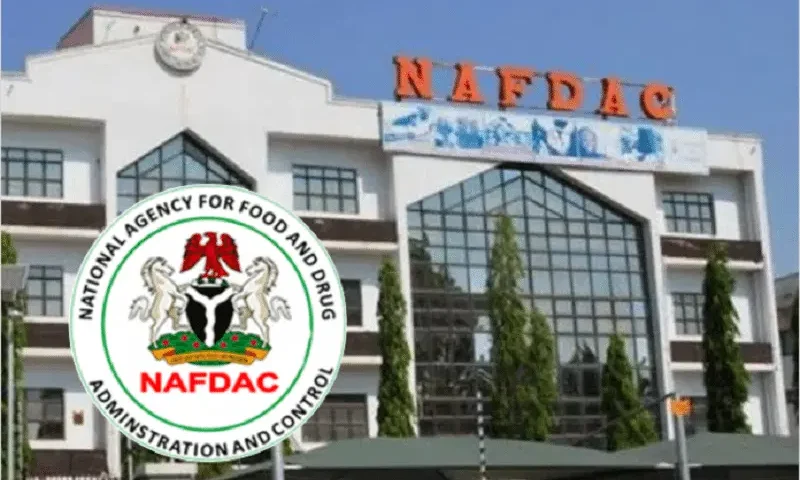
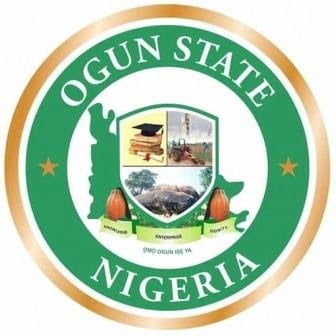
 The Ogun State Teaching Service Commission has reaffirmed its commitment to improving the welfare and working conditions of teaching and non-teaching staff in secondary schools across the state, as part of efforts to ensure optimal performance and productivity in the education sector.
The Ogun State Teaching Service Commission has reaffirmed its commitment to improving the welfare and working conditions of teaching and non-teaching staff in secondary schools across the state, as part of efforts to ensure optimal performance and productivity in the education sector.
 The Federal Ministry of Agriculture and Food Security has declared that it is collaborating with Abia State and other partners to boost food security and supply which will reduce food importation into the country.
The Federal Ministry of Agriculture and Food Security has declared that it is collaborating with Abia State and other partners to boost food security and supply which will reduce food importation into the country.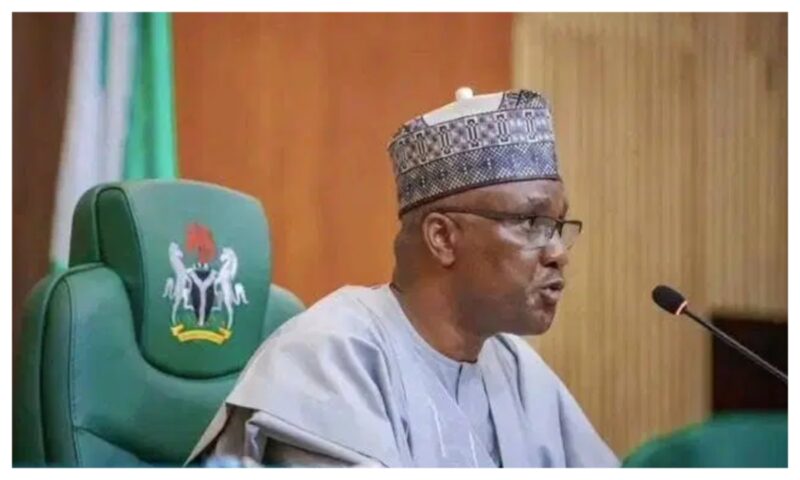
 Speaker of the House of Representatives, Tajudeen Abbas, has stressed the need for a combination of military action, political negotiations and justice to address Nigeria’s security challenges.
Speaker of the House of Representatives, Tajudeen Abbas, has stressed the need for a combination of military action, political negotiations and justice to address Nigeria’s security challenges.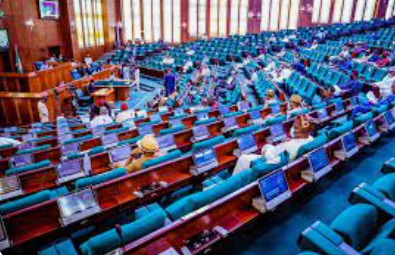
 The House of Representatives is considering a bill to amend the Electricity Act, 2023, to divest the Nigerian Electricity Regulatory Commission, the Rural Electrification Agency, and the Rural Electrification Fund of powers to regulate, promote, or undertake the development and utilisation of renewable energy.
The House of Representatives is considering a bill to amend the Electricity Act, 2023, to divest the Nigerian Electricity Regulatory Commission, the Rural Electrification Agency, and the Rural Electrification Fund of powers to regulate, promote, or undertake the development and utilisation of renewable energy.
 Abia State Police Command has said that it is aware of the broadcast by Arise TV on the alleged killing of young men and adult males by members of local community security watch groups in Umuogele (Aba South LGA), Iheorji (Aba South LGA), and Nkpaevula (Ugwunagbo LGA) with the backing of their respective traditional rulers (Ezes).
Abia State Police Command has said that it is aware of the broadcast by Arise TV on the alleged killing of young men and adult males by members of local community security watch groups in Umuogele (Aba South LGA), Iheorji (Aba South LGA), and Nkpaevula (Ugwunagbo LGA) with the backing of their respective traditional rulers (Ezes).


 A prosecution witness and former Executive Director of Credits at the Asset Management Corporation of Nigeria, Muhammed Jega, on Wednesday told the Lagos State Special Offences Court, Ikeja, that the facility granted to Arik Air by Union Bank Plc for aircraft purchase had become non-performing before he left AMCON in 2015.
A prosecution witness and former Executive Director of Credits at the Asset Management Corporation of Nigeria, Muhammed Jega, on Wednesday told the Lagos State Special Offences Court, Ikeja, that the facility granted to Arik Air by Union Bank Plc for aircraft purchase had become non-performing before he left AMCON in 2015.

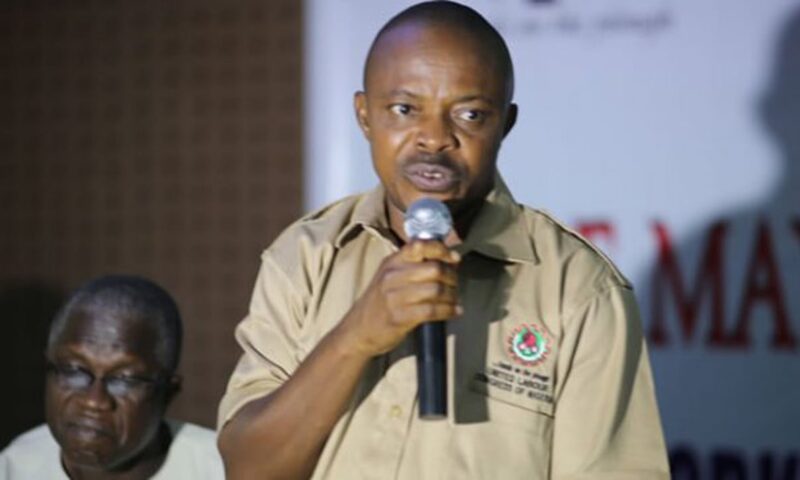
 The National President of the Nigeria Labour Congress, Comrade Joe Ajaero, has faulted the alleged non-implementation of the new minimum wage for certain categories of staff at Abia State University, Uturu.
The National President of the Nigeria Labour Congress, Comrade Joe Ajaero, has faulted the alleged non-implementation of the new minimum wage for certain categories of staff at Abia State University, Uturu.